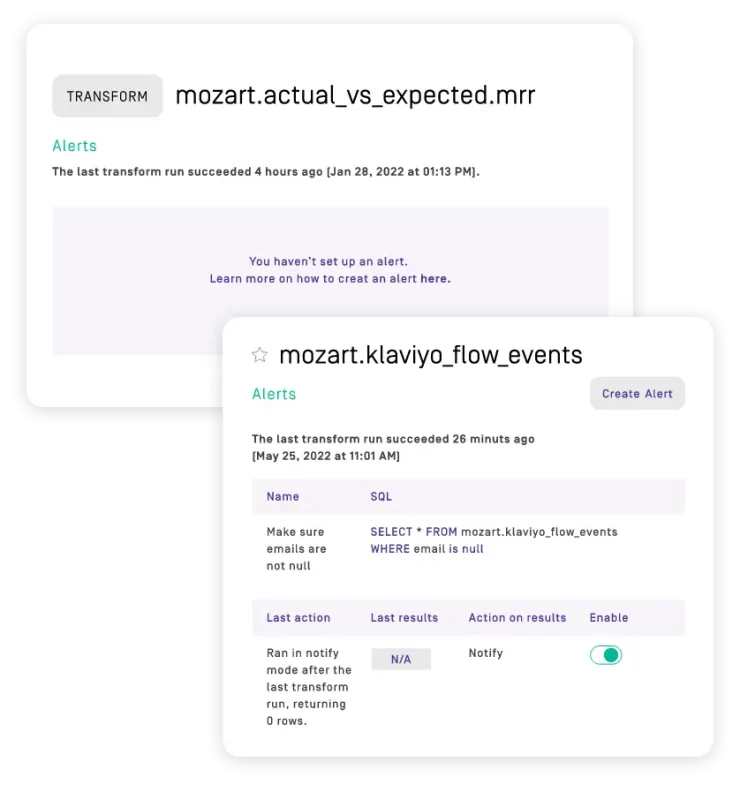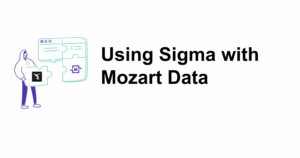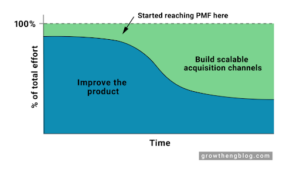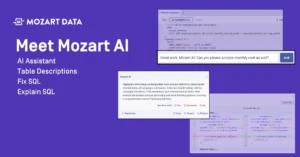Build trust in data-driven decisions
Make reliable data the norm
- Take data-driven actions based on clean data and trustworthy insights
- Quickly view and understand your complete data pipeline with our data lineage features
- Set up alerts for breaks, milestones, or whatever you need and save time monitoring your data
- Build a data-driven culture when stakeholders trust insights

Take action based on your data
Taking action with data requires trust. You need to trust that the tools you’re working with enable you to successfully move data from your siloed sources to a central location and consistently clean and organize that data for analysis. Our data lineage features help you visualize your data pipeline, so you always understand how your data has moved from different sources to the tables you use for analysis.If you trust your data pipeline, you know you’re working with valid data and can always get up-to-date insight into different business processes. Trustworthy insights lead to precise, confident decisions.
Use data testing to prevent errors
Set your pipeline up right the first time and automate your data extraction and transformation, eliminating the risk of manual errors. Our data analysts are here to help if you need them. Set up transform tests so you can be alerted to faulty or outdated information — before it becomes accessible and starts being used downstream.
Track important outcomes with alerts
Automated alerts help you keep track of the status of your data and can be customized for your specific business needs. Setting up alerts when certain conditions are met — like unexpected duplicate or missing values in a column — can help you identify inconsistencies or unreliable data before you try to mine it for insights. You can also set up alerts for milestones in your data that might warrant attention, whether that’s low inventory or a record sale that’s cause to celebrate.
Frequently asked
questions
Data reliability means data is complete and accurate. Instead of relying on someone else to point out errors or giving decision-makers insufficient data, you can proactively catch and fix issues early on. Having reliable data is the foundation for confident decision-making and a successful data team.
Data integrity can be achieved in several ways; these are the most efficient ways to keep your data’s integrity:
- Regular risk-based validation checks
- Working with reputable service providers like us.
- Performing regular data audits.
- Using automated alerts
Determining reliability starts with the right tools, so you can trust that the process of moving and analyzing data is sound. Understanding the real context surrounding your data also makes it much easier to determine what does or does not need further examination — asking a stakeholder “does this sound right?” can be a practical first step.
Mozart’s data analysts are available to help you determine what reliable data looks like for your organization.
Setting up alerts and writing transform tests requires little technical expertise. Anyone proficient in SQL can set them up quickly.
Become a data maestro

Using Sigma with Mozart Data
Overview Hey there – we’re diving into an exciting walkthrough of how to integrate Sigma Computing (“Sigma”), a business

Customer Analytics for Startups
This post was written by guest author Trevor Fox. Every startup of a certain size, at a certain degree of
